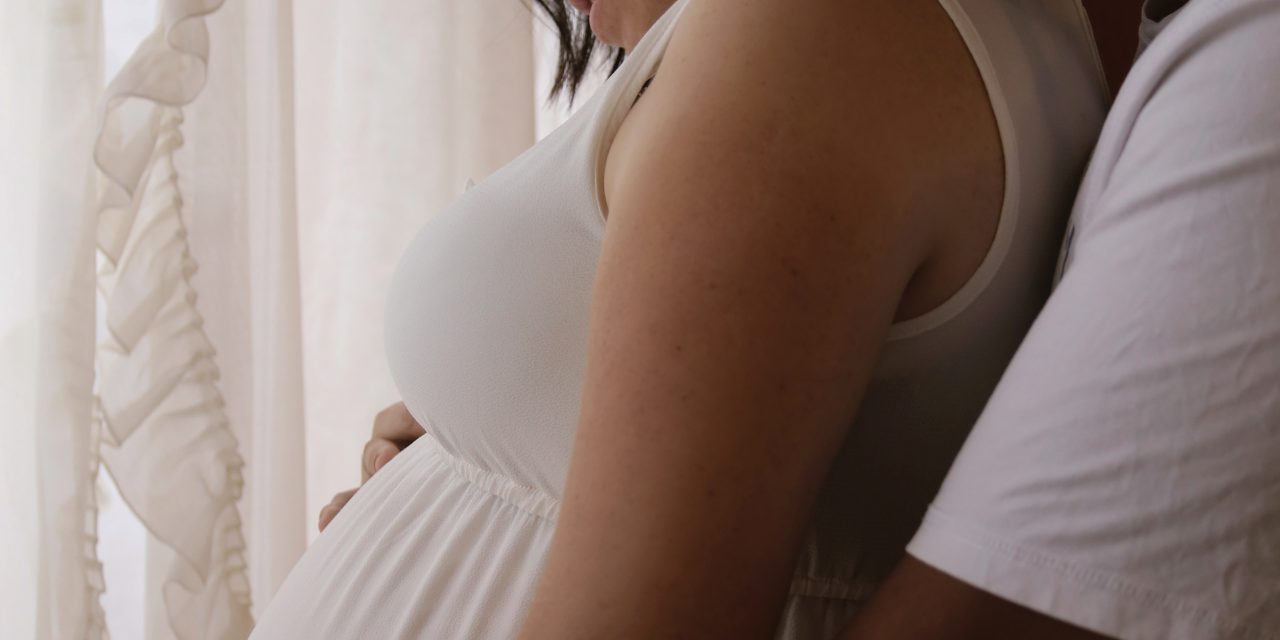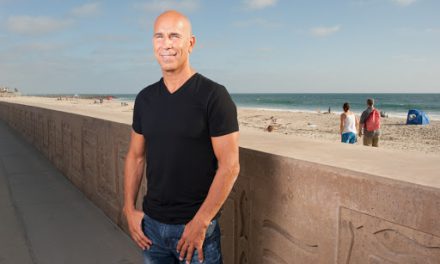The phrase “there are two sides to every story” is common. What isn’t common is exploring the alternative, rarely pursued, or questioned sides to that story. Lynette Waithaka, a 23-year-old nursing student at Palomar College, is an untouched, refreshing source of truth.
The idea of having a baby before achieving an established career or being married is somewhat of a social taboo in our society, full of mystery and assumption. Gaining clarity on the reality of that “taboo” is attainable, and can even be found at the schools we go to.
Waithaka and her 3-year-old son are part of that minority of young, independent families.
Despite it being unexpected, Waithaka always saw herself having children. She had the desire to be a mother, having spent time helping raise her sisters daughter. Waithaka’s plan was to get her degree before getting settled in life and raising a child of her own, but plans changed.
“I was actually at [Arizona State University] when I had him,” Waithaka said. “I had to drop out of school for that period of time because I got so sick. I had a really tough pregnancy.”
Waithaka had to move back to her mother’s house in order to deal with the physical sickness of her pregnancy. While her family showed support, it wasn’t an easy reality for them to embrace.
“My mom was really disappointed at first, but after maybe two or three months she accepted it,” Waithaka said.
She continued, “The baby wasn’t going anywhere, so she came to terms with it. And my older sister was also very supportive. I’d say in general they were really supportive but disappointed of course, as I was, too.”
After Waithaka became pregnant she reacted just as one might think: taken aback, as her world suddenly changed. It wasn’t instant, brash acceptance of her circumstances, though.
“For some reason I could not come to terms with the pregnancy, so that was the hardest part for me,” Waithaka said. “I was like ‘I can’t get pregnant! What are you talking about?'”
Eventually Waithaka’s mentality shifted as she realized it was time to take responsibility.
“He motivated me,” Waithaka said of her son. “He definitely changed my life. But for the better.”
—-
In society, unexpected pregnancy is something even those in the media tackle and discuss. It has become a hot topic, one that has opposing viewpoints of the same reality.
One example of an opposing viewpoint to unexpected pregnancy comes from Fox News writer Kim Keller, who believes that the inclusion of young parents is “condoning” teen pregnancy. Keller wrote an online piece published on June 2, 2014 titled “Opinion: Teen Pregnancy Is An Issue, But Should We Highlight It In Our Yearbooks?”
An excerpt from that opinion article summarizes Keller’s opinion:
“Yearbooks that feature photos of babies along with sports, honor rolls and clubs seem to condone teen pregnancy as just another part of high school life…. yes they deserve support…. but so does the boy who’s working nights to support his younger brother and the girl who’s studying six hours every night so she can be the first person in her family to go to college.”
Keller says in her article that “like it or not, some teens will become parents.” It’s the undeniable world we live in, so the battle with those with more traditional views of family now must address the way they and the rest of the world should handle it.
Keller is in a subgroup that subtly but surely wishes for familial traditions to be untainted and clean-cut: just like virginity.
That’s one side of our society: those who think that incorporating premarital parenting is “condoning” immorality.
Then there are those that mean to show support, but with flares of naivete.
The culture we embed ourselves in and the filtered images channels like MTV and E! News creates, are picturesque, quirky disfunction. The general scenario of the teen mom of today is some mid-western 16-year-old who was a cheerleader and had too much fun, got pregnant, miraculously had a whimsical on/off relationship with the child’s father, and then had a gorgeous little baby and somehow had all the support in the world. Sure, she had gossip and some family drama, but it all worked out– it worked out perfectly to suit our entertainment needs.
The reality is that teen parenting is still prevalent, but it’s gotten somewhat less common. According to the Center of Disease Control and prevention, as of the year 2014, a total of 249,078 babies were born to women aged 15–19 years, for a birth rate of 24.2 per 1,000 women in this age group. That’s nine percent less than the year before, but that doesn’t mean those in the group of teen parenting are having less struggle.
In light of seeing these young parents socially welcomed and accepted in school settings, some consider embracing teen/young adult parenting as “support,” whereas others view it as “promotion.”
In a study conducted by Nicole Martins, an assistant professor of telecommunications in the College of Arts and Sciences at IU Bloomington, and Robin Jensen, an assistant professor of communication at the University of Utah, 185 high schoolers of middle-America were surveyed. The prompt was to see if shows like “Teen Mom” and “16 and Pregnant” were, in their view, discouraging a lifestyle of teen parenting, or glamorizing it.
Martins was able to draw a blunt conclusion from this study.
“There are some individuals who believe that this reality TV show is like real life. For them, they were the most likely ones to hold unrealistic perceptions about teen parenthood,” Martins wrote.
If you are a blank-slate viewer, one that has little to no personal experience in the life of being a single/teenage parent, impressions mean everything.
If all you see on the television is a radiant, perfectly dolled-up 17-year-old with a hunky boyfriend and beautiful child, still somehow able to have time and funds to go out with friends, finish school, and raise a family– what would you think?
Clearly, the way this situation is viewed in school settings is a pressing matter. People are seemingly very for it to the point of naivety and aloofness, or very against it to the point of undue judgement. Either way, turning a blind eye in ignorance is common, just as the situation is.
Then, there’s this side of parenting: the side we live on and see in the flesh. Out of the darkness and into the light, here is the story of an everyday young, independent family.
——
A typical day for Waithaka starts in early sunrise hours. After dropping her son off at Palomar’s child lab she rushes to her 8 a.m. class.
The day doesn’t always kick-start, but it gets going in the end.
“[My son’s] not a morning person, just like I’m not,” Waithaka said. “Mornings are tough, for both of us.”
Waithaka resumes her day with three classes; her last one ending at 5:40 p.m.
Waithaka is confident her son is in good hands while at the center, and is sure to make her time count while she is on campus.
“In between my classes I’m just always reading, cause when I go home its not always a guarantee that he’s gonna let me read. He wants to read with me, or just… if he doesn’t get that attention, he just starts ripping pages out of the books,” she said with a laugh.
Nights back home and weekends aren’t necessarily care-free, either.
“Sometimes I just wait for him to go to bed and I’ll read or I’ll just put on Mickey Mouse for him for a little while. But yeah in general…its tough,” Waithaka said. “I always say I’ll do homework over the weekend but I don’t. It’s almost impossible.”
Her son’s father lives in Arizona, but Waithaka encourages him to keep his father in his life.
“I’m not the kind of person who will say ‘just leave your dad alone,'” Waithaka said. “I’m still trying to figure out how the whole situation is going to work.”
Waithaka also has a boyfriend of two years, since her son started walking. The three live as a family in Vista, so her son has support from all over.
“He does have a male figure in his life. I think that’s really important to have. Not everyone has it. If I didn’t meet [my boyfriend] though, I’d still be doing it,” Waithaka said.
An avid learner, Waithaka, native to Kenya, Africa, stays regular in her linguistics. She speaks three languages: English, Swahili, and Kikuyu. She’s also teaching her son to speak her native tongue. “I’ll say a word, here and there.”
She even took her son to Kenya for the first time this past January. “We had a blast,” she said.
Waithaka has come to accept and embrace the life she now leads with her son. Her positive yet practical outlook prompted the question: what does she think of society’s on-the-fence mentality of young parenting?
Waithaka has seen both the supportive, and the non-supportive sides.
“I feel like it happens so frequently, people– they don’t care. They just don’t. They just accept you the way you are. I did have a professor though, who…I liked him, but he said… ‘People that have kids that are at a young age, there’s like a 10 percent chance of them succeeding in life,” Waithaka said. “You’ll find the people who are really accommodating and accept younger parents, and there are others who are just like ‘ oh you’re stupid, why would you do that? You should’ve had an abortion.’ I’ve had both experiences. But I don’t care, as long as my son is okay and I’m okay. The rest is fine.”
Independence was a recurring theme of Waithaka’s rationality of handling life as a young, single mother. Government assistance is absolutely not in the cards for this student/parent.
“I work extremely hard to make sure I won’t have to get on government support or anything like that. I’m sure everyone else works hard too, but I go the extra step to get the good grades in school cause I know that’s really important step to move forward in life,” Waithaka said. “At least that’s how I grew up. That’s what I grew up knowing. So I work. I work extremely hard.”
The future shines bright in Waithaka’s face with her son by her side. That “shine” in her face is the prospect of dreamy Los Angeles sunshine illuminating her passion for innovative progression, centered at the crisp, polished school buildings of UCLA.
For those that question which side of youth parenting one takes, Waithaka had one final thought.
“Just accept it,” she said. “Those kids from those young parents are probably going to be the future of the world. Just accept it.”






Recent Comments